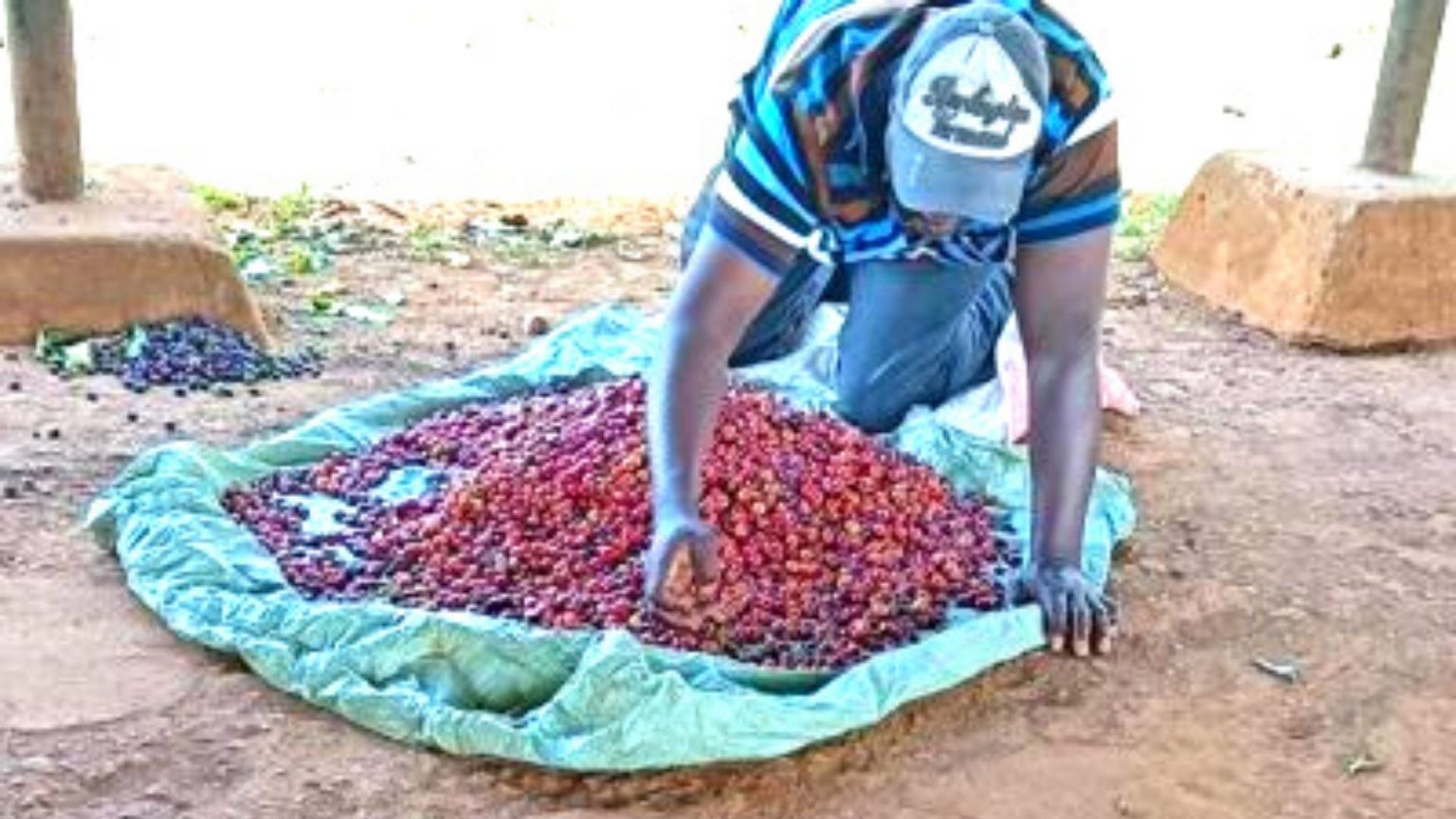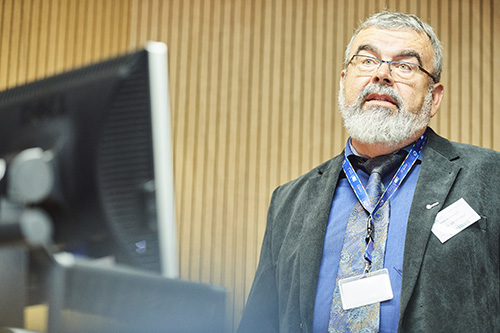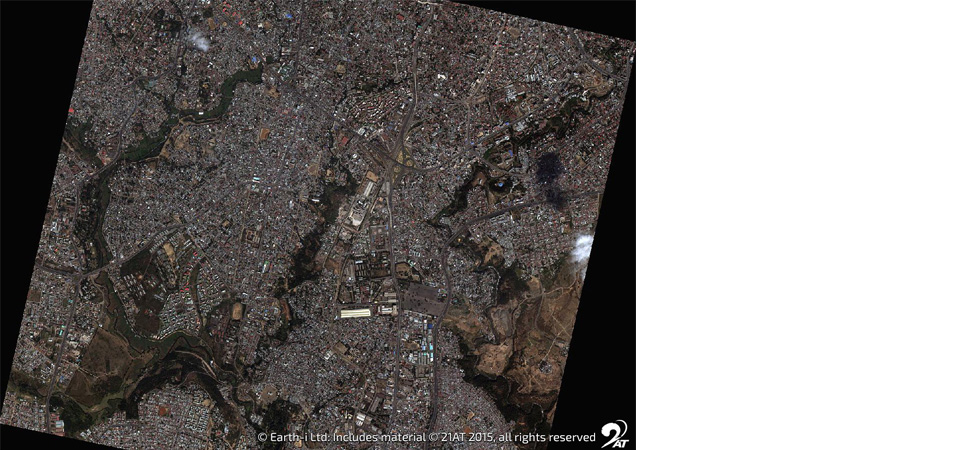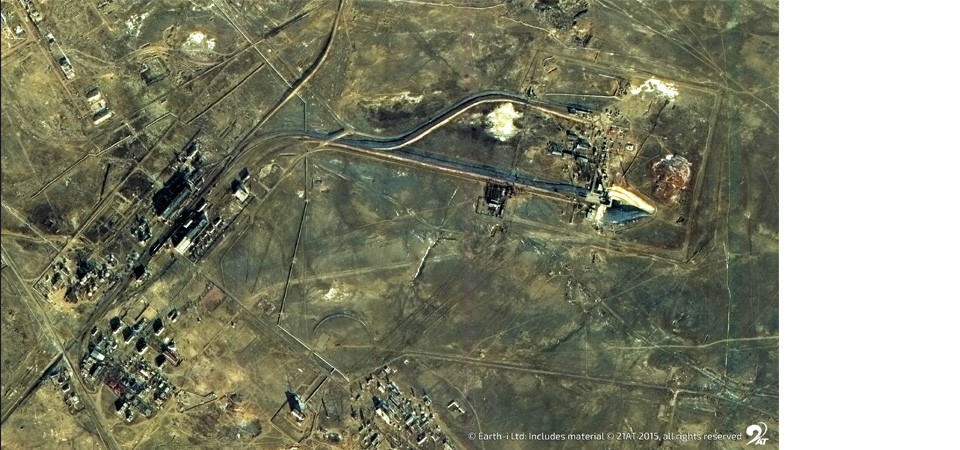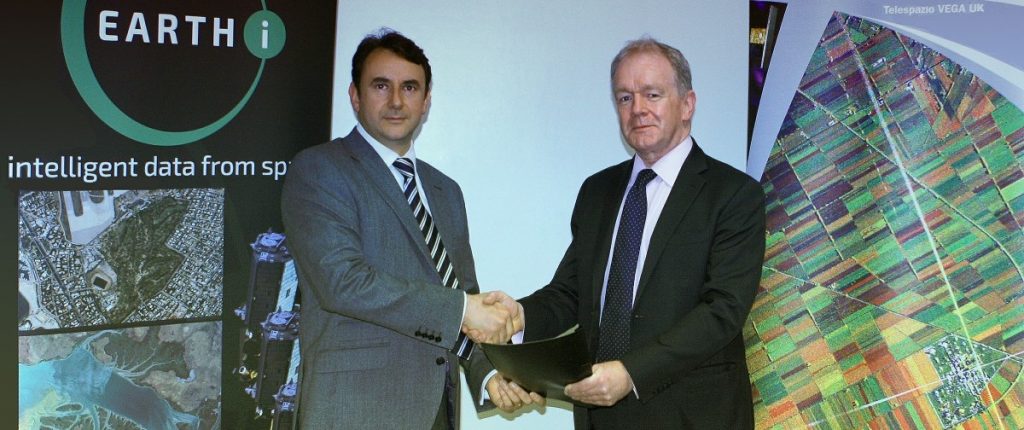Coffee Management Services Ltd (CMS) is one of the leading marketing agents in Kenya having marketed over 11,360 MT (26% of total Kenyan Production) in the 2017/18 season. CMS began operating in 2006 and is a licensed Management Agent, Marketing Agent and Warehouseman working with both smallholder farmers and coffee estates. Currently CMS manages about 14 estates of approximately 2,500 hectares of plantation coffee trees producing 8% of total Kenyan production. CMS works with approximately 250,000 farmers in Kenya and Rwanda processing their coffee through 195 wet mills and three dry mills.
CMS offers a wide range of services in the coffee sector which includes: Agronomy, competitive agro-inputs supply, milling, marketing, financial support services, warehousing, certification and project management.
Within the ACCORD project, delivered with the support of the UK Space Agency’s International Partnership Programme, CMS has mapped more than 50,000 coffee fields and farms organized through their network of farmer cooperative societies and washing stations. We talked with Phyllis Warui, CMS Regional Development and Sustainability Manager, about their company and the impact of ACCORD service to their farmers and lessons learned.
How has ACCORD impacted your business in terms of lessons, successes and challenges?
Through the ACCORD project, our agronomists are able to offer accurate agronomic advice to farmers aligning their advice to the ACCORD weather forecasting service. The goal is farmers will see an increased Return on Invest as by following the advice offered they stand to get higher quality yields.
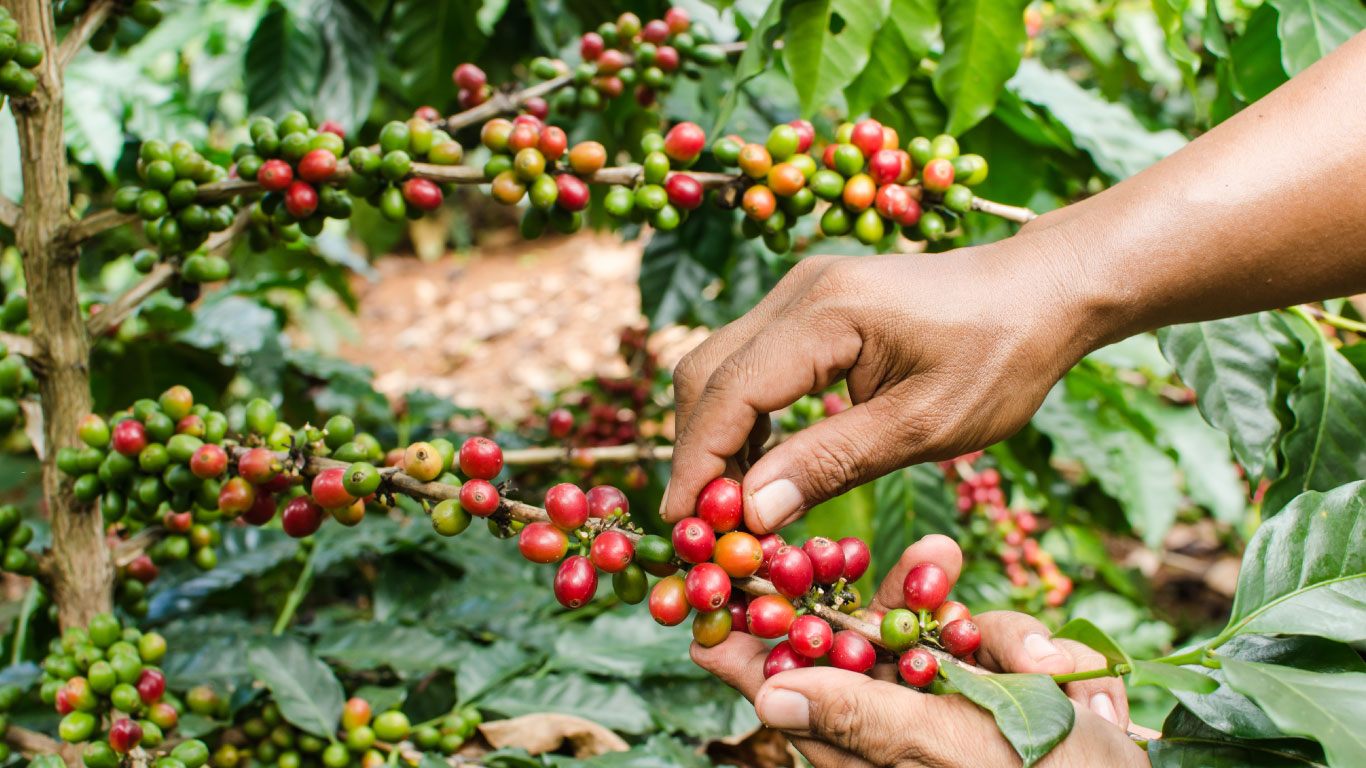
Coffee trees are sensitive to environment and climate and require careful management
Evidence from the latest farmers surveys shows that farmers appreciate the alerts and advice they receive via their mobile phones with 97.8% of them reporting taking recommended actions, 98.3% reporting positive change in the health of their crop, and 97.2% reporting being satisfied with the service overall.
The delivery of agronomic information to farmers is much enhanced through the project activities as more farmers can be reached at the same time using the SMS messaging service. Planning for agro-input advice to farmers is made more efficient by factoring in the weather forecast information from the ACCORD service.
Gauging farmer adoption of agronomic advice offered through the platform was quite difficult, given in essence it is a remote service. It is therefore an extension of our traditional field agronomy service, and follow up from agronomists and regular contact with cooperatives and farmers remains essential. Getting accurate farmer and cooperative data on which to base company decisions and field agronomist daily activity is always major challenge and, over time, we expect the ACCORD service will help with this by building greater transparency.
How well has ACCORD integrated with your approach and innovations in agronomy?
Agronomy support is one of the core services that CMS offers to farmers. This includes full farm management and field advisory services for estates and smallholders. Agronomists are seconded to estates, farms, washing stations and cooperative societies to provide day to day agronomic services to farmers.
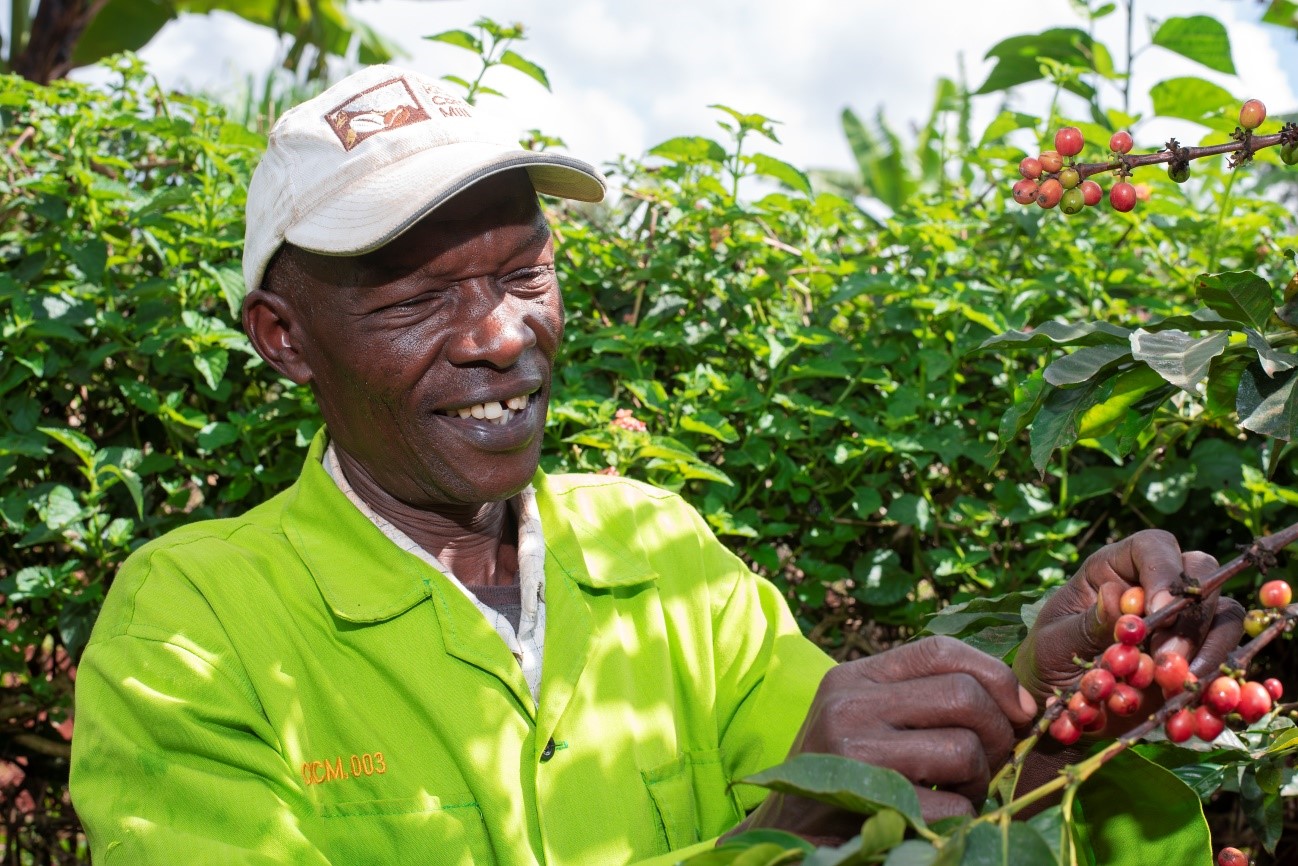
A CMS agronomist inspects cherries on a Kenyan farmer’s tree
Through the ACCORD project messaging service we are able to reach many farmers at the same time and hence able to offer agronomic advice to them more efficiently.
The weather forecast service offered to coffee farmers through the ACCORD service is also key as most coffee agronomic activities are dependent on weather. ACCORD assists us in providing agronomic advice that is in line with accurate weather forecasts available to our agronomists through the project.
In summary, the ACCORD service delivers enhanced agronomic and weather information direct to farmers enabling them to plan their daily coffee farming activities better. This aligns perfectly with the core activities of CMS in supporting our farmer community.
How has ACCORD service contributed to CMS’ vision on sustainability?
By following the agronomic advice triggered by unexpected weather conditions the farmers are able to plan their daily activities accordingly. This enables farmers to achieve better coffee yields in terms of quality and quantity. This makes the coffee business more sustainable for all stakeholders.
Training of farmers on Good Agricultural Practices (G.A.P.s) and reinforcement of those improved practices through the ACCORD service has motivated farmers to keep on farming coffee despite the challenges, and hence makes the coffee business sustainable for the long term.
How well has ACCORD addressed key issues that are relevant to CMS growth?
Farmer training on G.A.P. to increase farmer production volumes is among the major objectives of CMS as a company. The ACCORD project plays a very big role in facilitating CMS field agronomists to effectively reach over 40,000 farmers on G.A.P. Effective advice for farmers to better their production in terms of quality and quantity is a key factor in the growth of CMS as a whole.
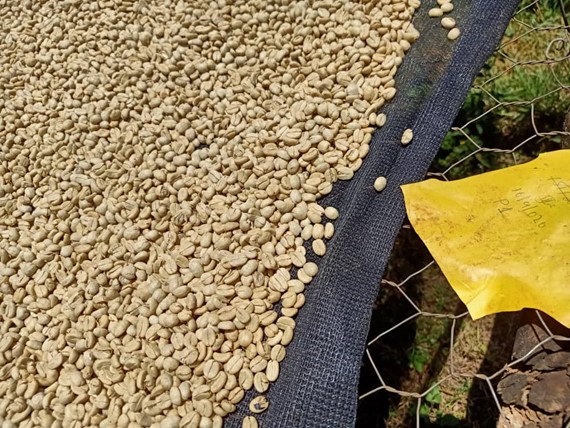
Consistently good yields are critical to sustainable smallholder farming
In your experience, how significant has been the impact of climate change on coffee farming in Africa (in the Kenya and Rwanda context)?
Excess rainfall experienced due to climate change leads to an increased threat from coffee pests and diseases, the leaching of nutrients in the soil and increased soil erosion. This in turn leads to a decline in coffee quality and quantity.
Climate change has caused significant changes to traditional weather patterns. This leads to more intermittent flowering in coffee and that eventually reduces coffee yields.
We have also experienced more periods of drought due to climate change, and this leads to poorer quality of coffee grades (lights) and lower production volumes. It can mean an increase in outbreaks of coffee pests that also negatively affect coffee quality and quantity.
What are your expectations for how ACCORD will impact crop quality, crop yields and ultimately farmer incomes?
It is expected that farmers who consistently implement the agronomic advice offered to them through the ACCORD service will experience positive impact in their coffee crop quality, production volumes and eventually their proceeds from coffee sales. This makes coffee farming more sustainable for farmers and increases the security of supply for coffee processors and distributors such as CMS to ensure a healthy market and good returns for farmers, their families and communities.
Tackling climate change is a win-win for everyone in the coffee supply chain. We must support our farmers in dealing with this major threat and in doing so we ensure we are building long term sustainability for all.
International Partnership Programme
The International Partnership Programme (IPP) is a five-year, £30 million-per-year initiative run by the UK Space Agency. It focuses on using the UK space sector’s research and innovation strengths to deliver sustainable economic or societal benefit to developing economies around the world. IPP is part of, and is funded from, the Department for Business, Energy and Industrial Strategy’s Global Challenges Research Fund (GCRF). GCRF is a £1.5 billion fund announced by the UK Government which supports cutting-edge research and innovation on global issues affecting developing countries.

